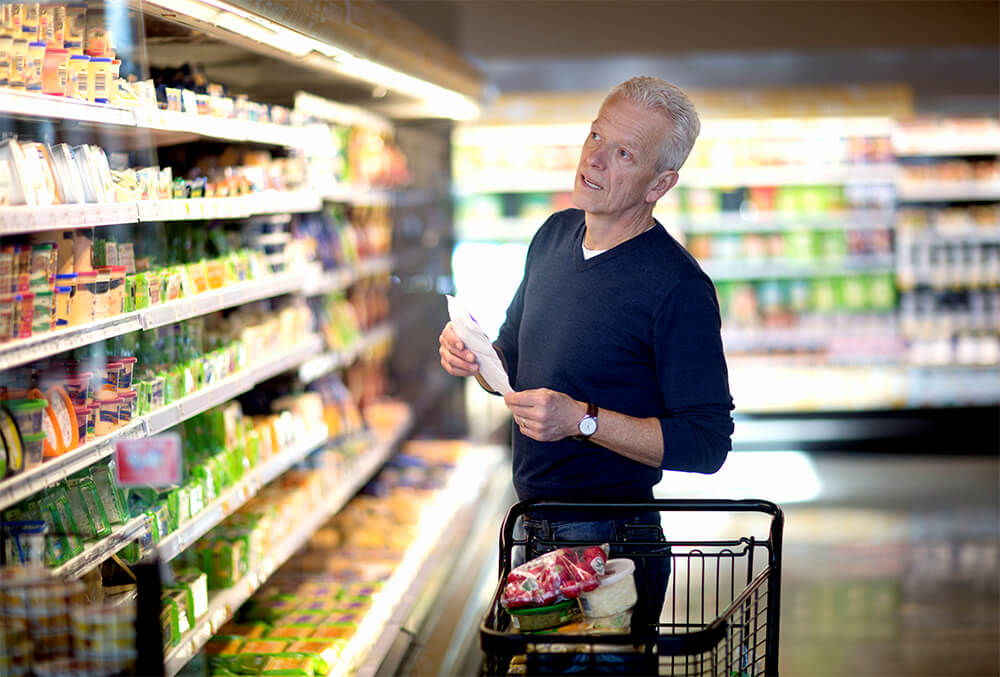After completing cancer treatment, you may want to take steps to help prevent a recurrence. While you cannot control every risk factor, one thing you can control is what you eat.
Nutrition plays a role in about one third of all cancers. After smoking, obesity is the most significant controllable risk factor. By maintaining a healthy weight and eating a balanced diet full of healthy, non-processed foods, you can do your part to reduce your risk.
In addition to helping prevent recurrence, a healthy, nutritious diet can also help your body recover from cancer treatment. Eating well can build strength, boost your energy levels, rebuild tissue, and help you feel better overall. Some foods can also help with treatment-related side effects. Other foods should be limited or avoided altogether.
Both the American Cancer Society and the American Institute for Cancer Research (AICR) offer recommendations for maintaining a healthy diet after cancer treatment.
Yes! Eat These Foods
- Protein is important because it provides amino acids, the essential building blocks of all living things. Protein helps build and repair tissue and make hormones and enzymes. Fill your diet with plant-based proteins like beans, lentils, soy, nuts, and quinoa. Healthy animal-based proteins include chicken, turkey, eggs, fish, and seafood. Good sources of dairy-based proteins include milk, cheese, and Greek yogurt.
- Fruits and Vegetables. These are your source of important vitamins, minerals, phytochemicals, and antioxidants, all of which work together to keep you healthy and prevent cancer. You can ensure you are getting a variety of what your body needs by choosing a mix of different colored fruits and vegetables. If your diet includes reds, greens, purples, yellows, and oranges, you’re on the right track!
- Whole grains. Whole grains are much better for you than processed grain products. Whole grains are rich in fiber, B vitamins, antioxidants, and trace minerals like zinc, iron, copper, and magnesium. Look for oats, quinoa, barley, and brown rice. Check the label for “100% whole grain” when buying bread, pasta, crackers, and cereal.
- Healthy fats are good for you! These unsaturated fats mostly come from plant sources like nuts, seeds, and avocados. Cooking oils such as canola, peanut, soybean, and olive oils are good fats, too. Fatty fish, such as salmon and sardines, are also rich in healthy fats.
- Foods rich in vitamin D and calcium. These promote bone growth and combat osteoporosis. Foods rich in vitamin D include salmon, tuna, fortified dairy products, cheese, and egg yolks. Foods rich in calcium include spinach, kale, okra, collards, soybeans, white beans, salmon, sardines, and rainbow trout.
No! Limit or Avoid These Foods
- Added sugar. There is no definitive research that sugar causes cancer, but it is well known that too much sugar isn’t good for you and is linked to obesity, which is a risk factor for cancer. Some healthy foods, like bananas, are naturally sweet. But you want to limit foods with added sugar, such as sodas, sugary cereals, granola bars, sweetened yogurts, candy, and desserts. Consume them as a once-in-awhile treat, not a daily indulgence.
- Refined carbohydrates. These are the so-called “white” foods: white bread, white rice, white flour—even regular pasta. They have been stripped of almost all fiber, vitamins, and minerals through processing, and thus are considered “empty” calories. Because they are digested quickly, they also raise your blood sugar.
- Red meat/processed meat. Red meat is associated with a higher risk of colorectal cancer, as well as other cancers. Processed meats can increase your risk of stomach and colorectal cancer. It’s best to limit or avoid these meats, which include beef, pork, lamb, lunchmeat, sausage, pepperoni, ham, and bacon.
- Trans fats. Trans fats such as partially hydrogenated vegetable oils are often found as an ingredient in commercially prepared pastries, peanut butter, fried foods, cake mix, shortening, and margarine. Eating these foods raises your levels of “bad” cholesterol and puts you at greater risk for heart disease.
- Alcohol. Studies show that alcohol is a risk factor for certain cancers. It can also make cancer treatment side effects like nausea, dehydration, and mouth sores worse. When it comes to alcohol consumption, risk increases with greater intake, but there is no drink that is “better” than another. Beer, wine, and spirits all contain ethanol, which is linked to increased cancer risk.
Build Your Healthy Plate!
The AICR recommends following as much of a plant-based diet as possible. A good start is to follow the New American Plate for cancer prevention.
The New American Plate states:
- At least 2/3 of your plate should be covered with plant-based foods like vegetables, whole grains, fruit, and beans.
- Up to 1/3 of your plate can contain animal-based protein-rich foods like seafood, poultry, dairy, and the occasional lean red meat.
Other AICR recommendations include:
- Eat at least 30g of fiber per day
- Eat at least 3.5 to 5 cups of fruits and vegetables each day
- Be a healthy weight
- Be physically active
- Limit processed, “fast” foods that are high in starches, sugars or fat
- Eat no more than 12-18 ounces per week of red meat
- Avoid processed meat
- Drink mostly water; avoid sweetened beverages
- Limit or avoid alcohol altogether
- Focus on getting your nutrition from food, not supplements
- Mothers should breastfeed their babies if possible; it reduces breast cancer risk
- Cancer survivors should talk to their doctors about nutritional recommendations
Last, but not least, it bears repeating that avoiding tobacco is the number one thing you can do to reduce your cancer risk. Resources to help you quit can be found here.



